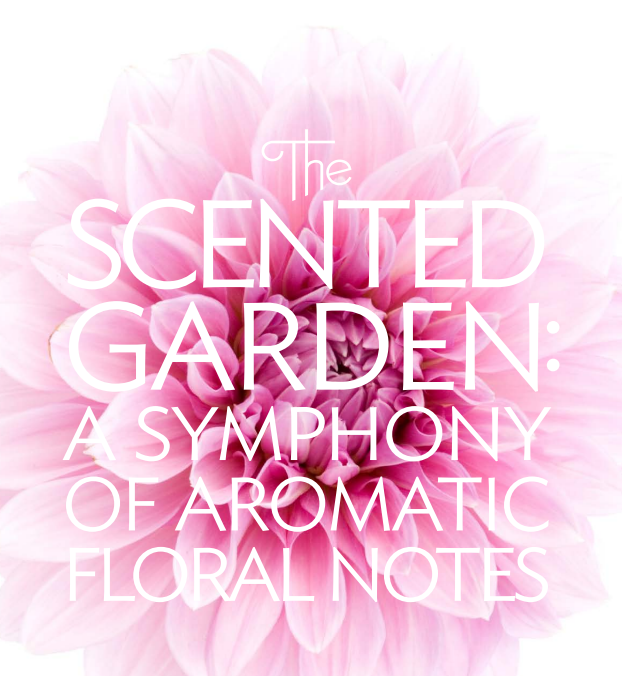
*This is an article from the Spring 2023 issue of Contentment Magazine.
By Stephanie Maxine Ross, PhD, MHD, HT, CNC, FAIS
Our sense of smell can provide avenues of delight and personal discovery, storing memories and impressions that arise with the first breath of an aroma. A garden infused with a symphony of aromatic floral notes can evoke deep relaxation, spiritual awareness, and a profound connection with nature.
The first scented gardens were planted more than 2500 years ago within the enclosed courtyards of Persian palaces. These gardens were constructed primarily to provide a spiritual sanctuary. Persians were taught from an early age that it was the duty of each individual to conserve and honor nature as part of the divine creation. Although these ancient aromatic gardens were often elaborate, even the smallest of garden spaces, including container gardens, can provide a tranquil retreat from everyday concerns, and a personal sanctuary for contemplation.
Creating A Scented Garden
Creating a scented garden is similar to an artist who paints a colorful landscape, but rather than stroking the canvas with brush and paint, the gardener creates a fragrant masterpiece with a trowel and a palette of aromatic plants.
The aromatic plant portraits that are presented have been selected for their distinctive captivating aromas and respective characteristics, as well as for their botanical qualities that favor use in small informal garden spaces, the woodland landscape, and the enchanting cottage garden.
Aromatic Plant Portraits
Buddleia is commonly known as the “butterfly bush” and is one of the most fragrant of garden plants. Its aromatic scent is sweetly fragrant; cheerful, and intoxicating. As the name implies, its floral scent and nectar are a common attraction for butterflies. This highly scented deciduous evergreen shrub displays spectacular violet-purple flower spikes that bloom from September to early frost. The butterfly bush is an esteemed companion planting for the woodland landscape and cottage garden. Arranging plantings in groups accentuates the fullness of the sweet intoxicating floral scent.
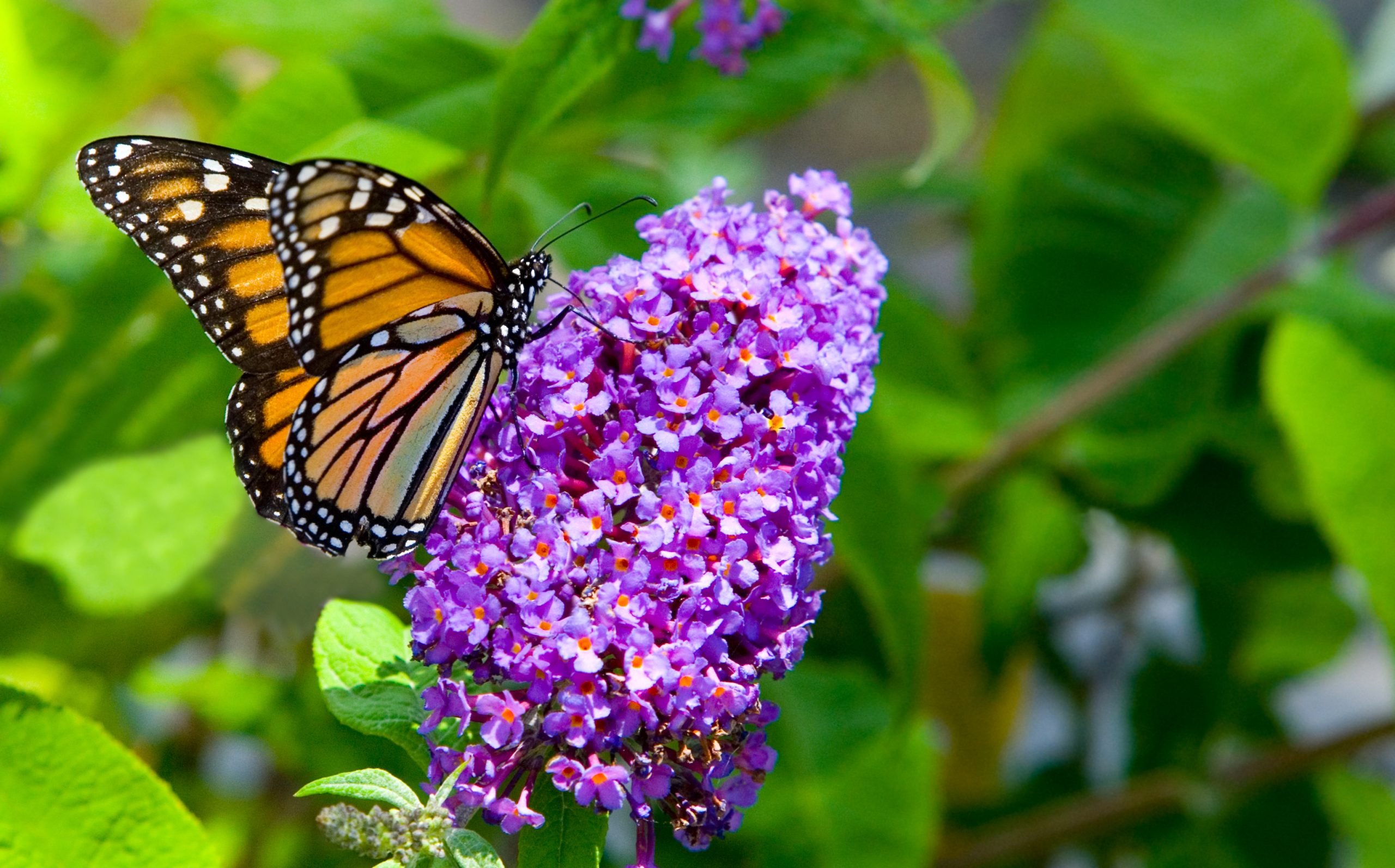
German chamomile (Matricaria recutita)
Chamomile enjoys a rich history of use as an aromatic herbal medicine. The name itself is derived from the Greek words chamos (ground) and melos (apple), referring to its low-growing habit and the warm apple scent of its daisy-like blossoms. Chamomiles’ white composite flowers infuse the garden space with a rich, sweet scent that is both relaxing and profoundly soothing. Both the form and fragrance of chamomile make this aromatic plant a perfect addition to any natural landscape.
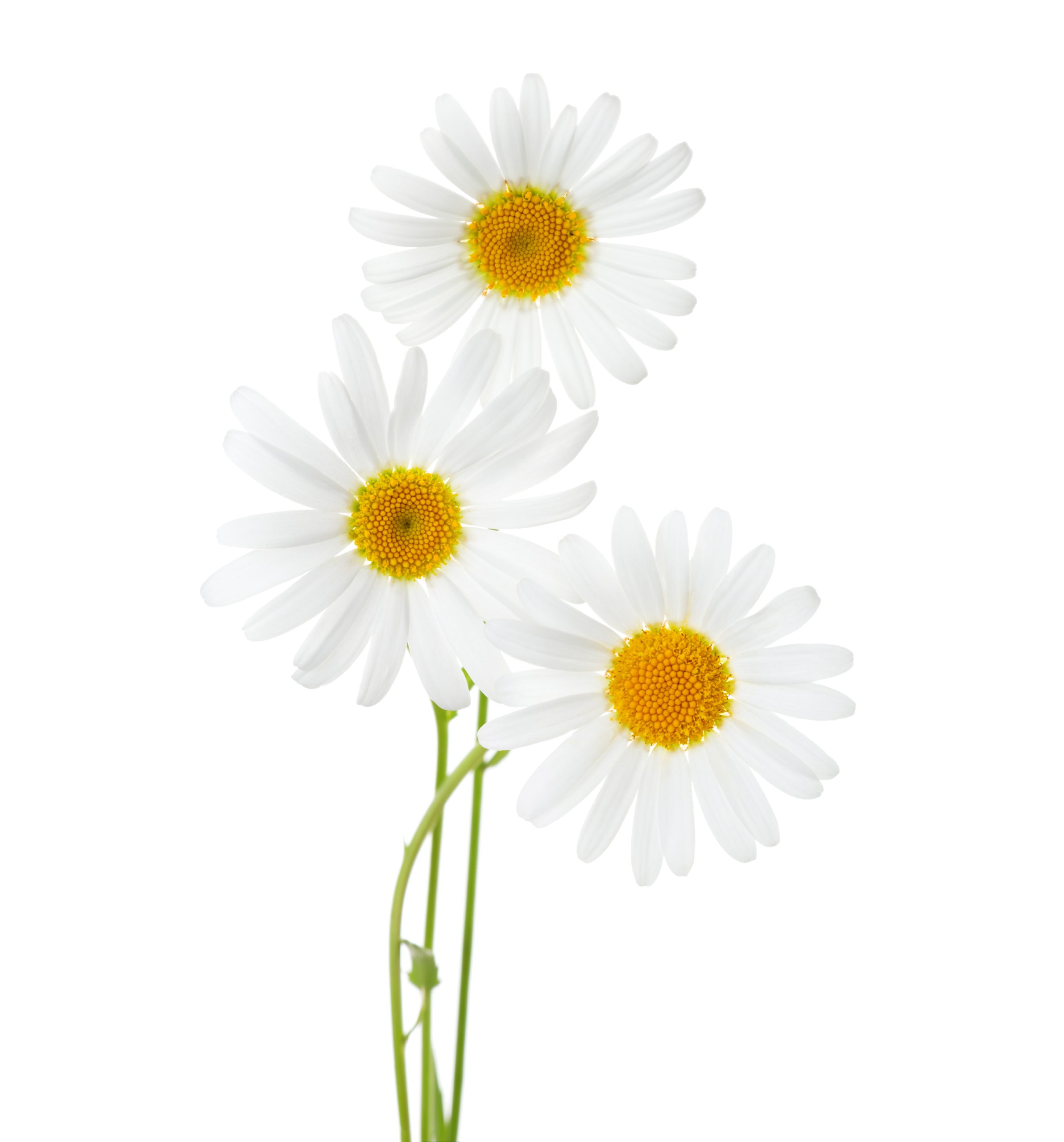
Chamomiles ( Ox-Eye Daisy )
Gardenia (Gardenia augusta)
Gardenia’s fragrant flowers exude a warm greeting when placed close to entryways or near outdoor living areas. It is a small, tender evergreen shrub, characterized by glossy, dark green leaves and fragrant ivory, double inflorescent flowers. Gardenia’s exotic, uplifting aroma and graceful form have earned it a prominent place in conservatories and sunrooms. The intoxicating, sweet-floral scent is still occasionally used in expensive oriental perfumes.
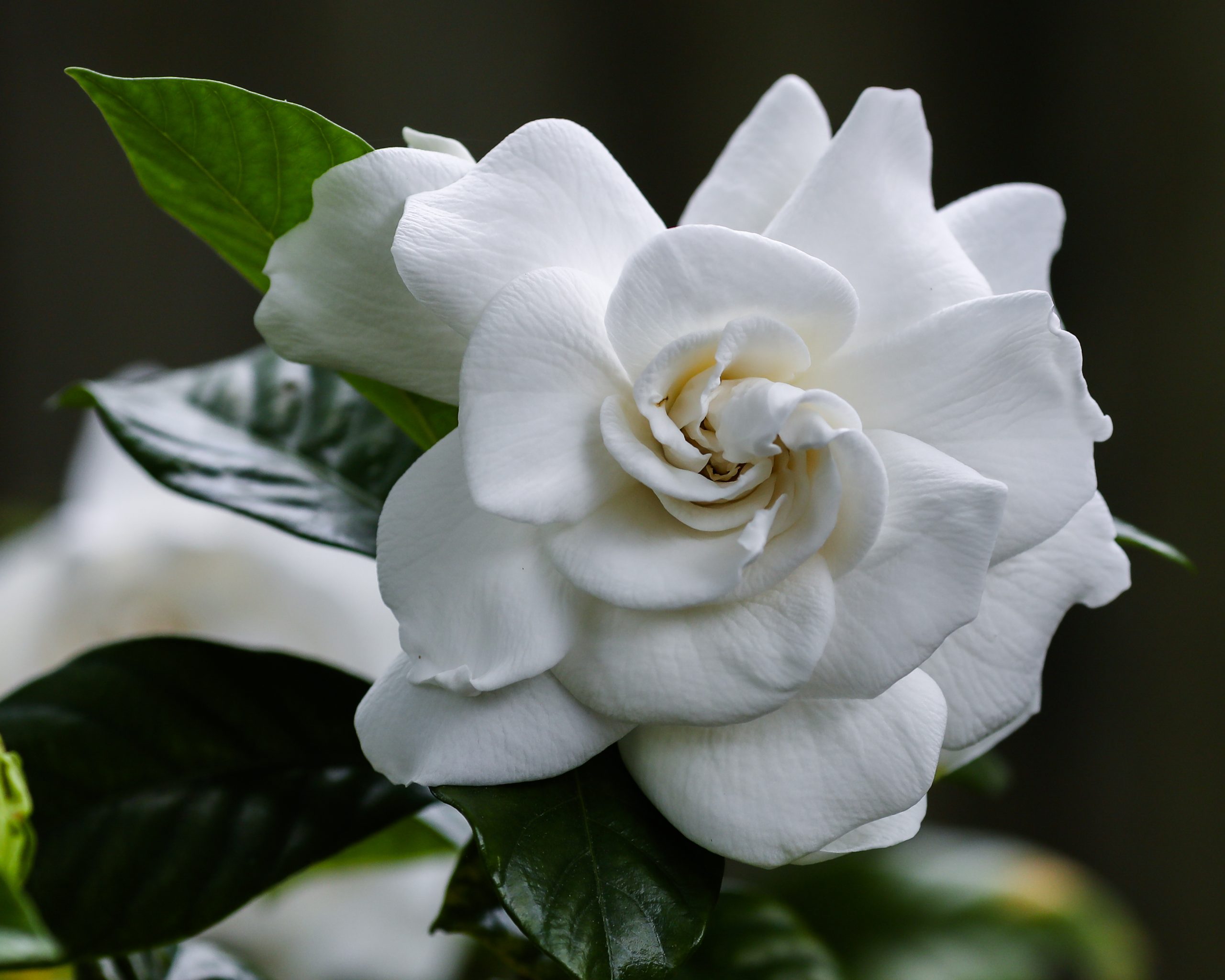
Beautiful white gardenia blooming in early spring
Honeysuckle (Lonicera periclymenum)
One only needs to recall sipping the sweet nectar from honeysuckle blossoms on those lazy, warm summer days of youth to realize how this aromatic vine acquired its name. The sweet floral bouquet of honeysuckle is uplifting, as well as refreshing, and adds charm to any naturalistic landscape. Often growing in the wild, the pervasive and evocative aroma of honeysuckle can transform its surroundings into a garden of floral enchantment. Honeysuckle is an exceptional woodland and cottage garden vine that trains easily over arbors, gateways, trellises, and along fences. The sweet nectar–filled flowers attract hummingbirds and butterflies.
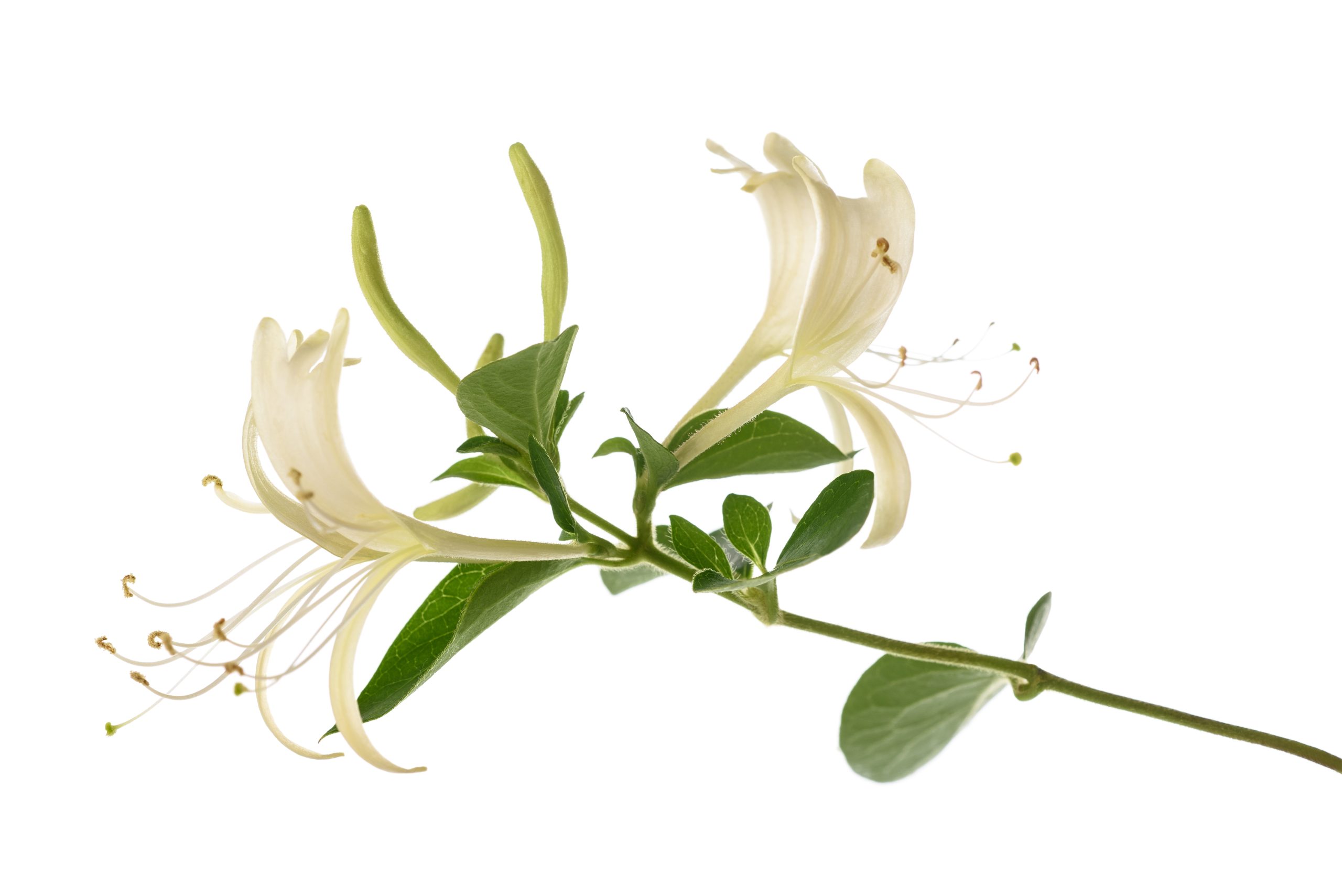
Honeysuckle flowers
Rosemary (Rosmarinus officinalis)
Rosemary has been a favorite of gardeners throughout the ages. It is a small evergreen bush with silvery-green, needle-shaped leaves. It has a refreshing, invigorating scent, which has a reviving, uplifting effect on the spirit. This fragrant evergreen is an essential component to any garden design, either planted in groups or as an accent planting in decorative ceramic pots.
The sweet-floral aroma of rose has been used historically to help ease grief and subdue sadness, inspire creativity, and activate intuition. Of the estimated 5000 or more species of rose, Rosa damascena is one of the most fragrant and is used in the production of essential oils. The aroma of Rosa damascena helps to support and soothe the emotions. It is known to ease anxiety and panic, elevate the spirit, and reduce stress and tension. In aromatherapy, it is used to calm the nerves and helps to overcome hyperactivity and insomnia.
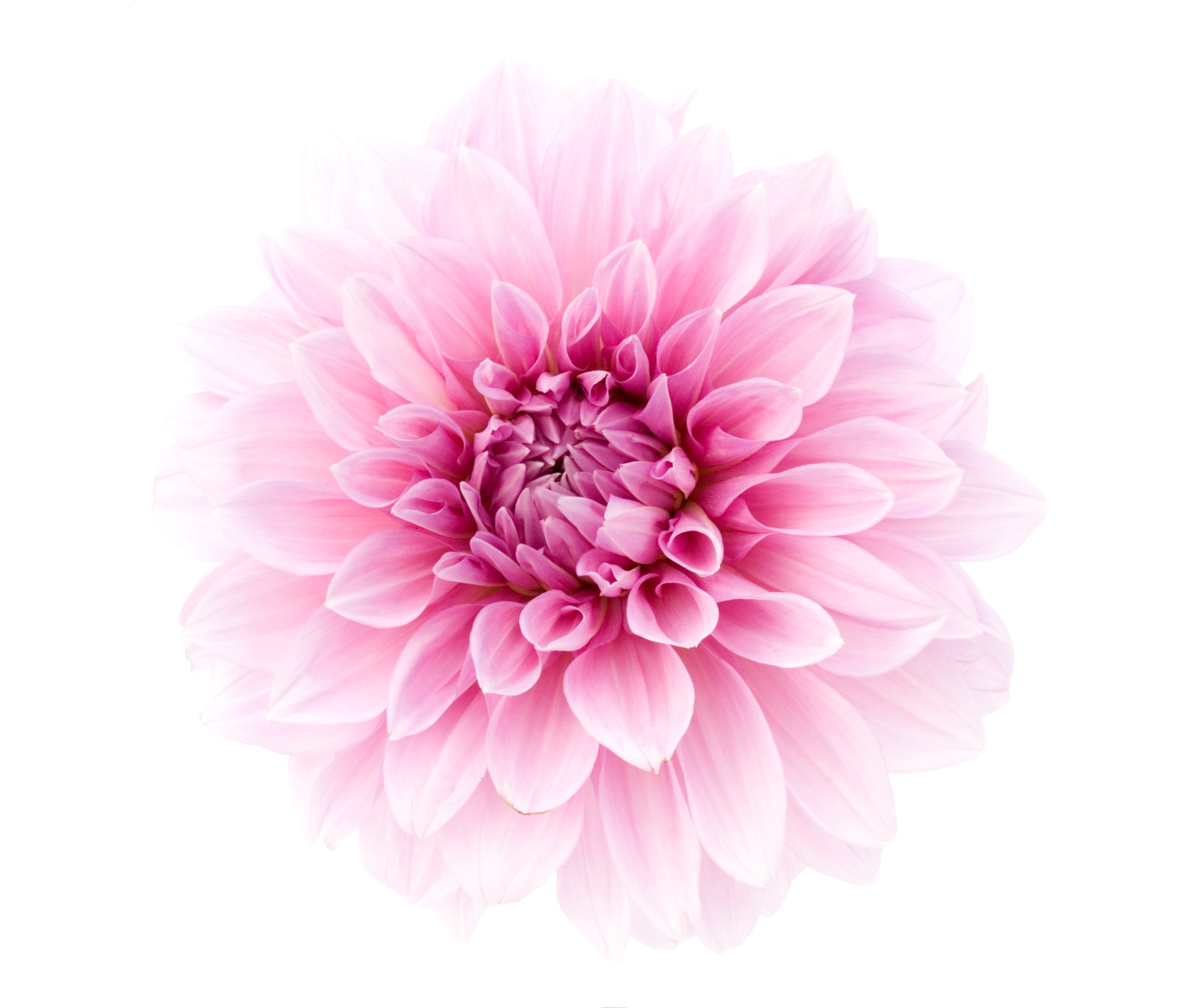
You can enjoy the benefits of a scented garden that enhances your mood, relieves stress, and improves your well-being. Aromatic plants make excellent additions to outdoor spaces because they naturally release essential oils into the air creating a soothing, and relaxing environment.
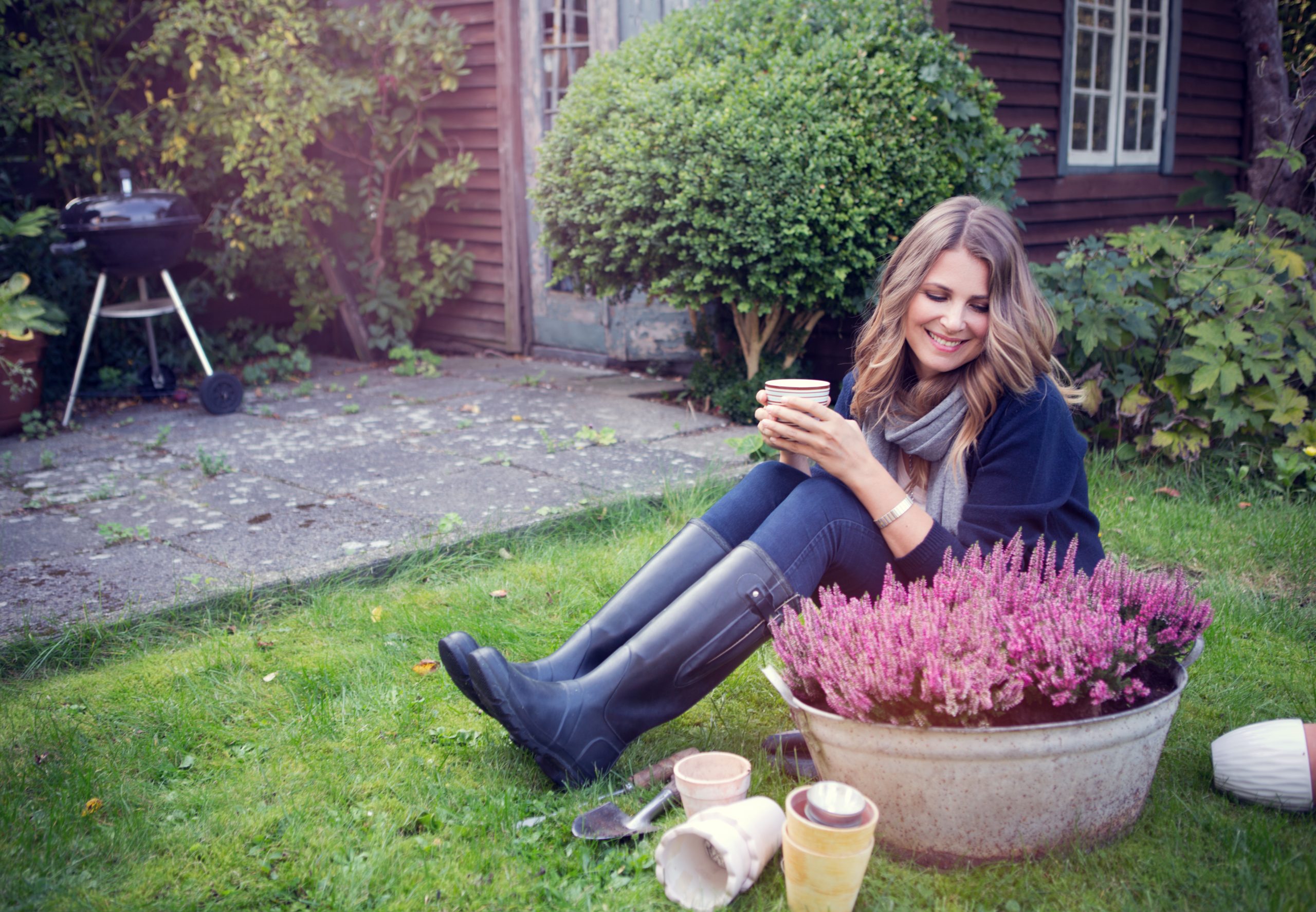
Suggested Readings
- Ross SM. Aromatic plants, spirituality, and sacred traditions. Holist Nurs Pract 2010;24(6):355-357.
- Ross SM. Aromatic plants, spirituality, and sacred traditions II. Holist Nurs Pract. 2007;21(6):331-332.
- Damian P, Damian K. Aromatherapy Scent and Psyche. Rochester, VT: Healing Arts Press; 1995.
- Lloyd C, Bird R. The Cottage Garden. New York, NY: DK Publishing; 1999.
- Price S, Price L. Aromatherapy for Health Professionals. Philadelphia, PA: Elsevier; 2007.
- Tisserand R. The Art of Aromatherapy. Rochester, VT: Healing Arts Press; 1977.
ABOUT THE AUTHOR

Dr. Stephanie Ross is an internationally recognized leader in Integrative Health. She served as clinical professor and the founding Director of the Department of Complementary and Integrative Health at Drexel University, College of Nursing and Health Professions, a pioneering program that partnered with the Andrew Weil Center for Integrative Medicine. Prior to Drexel, she initiated the first course in phytomedicine at Temple University School of Medicine, where she taught medical students. In addition to her scholarly achievements, Dr. Ross is a skilled and dedicated Integrative Health Practitioner, who guides her patients in achieving optimal health and wellness, with emphasis on integrative stress solutions. Dr. Ross has garnered numerous awards, is listed in Who’s Who in Health Sciences, and is a Fellow of the American Institute of Stress where she serves on the Executive Advisory Board and as Editor of Contentment, their peer-reviewed international publication.
Ross is extensively published with more than 97 articles featured in international peer-reviewed journals that are cited in the National Institute of Health’s Library of Medicine (PubMed). Dr. Ross serves as the Associate Editor for the peer-reviewed international Holistic Nursing Practice journal. She is a sought after consultant on Workplace Stress and a keynote speaker at Corporations and Healthcare Systems.
Dr. Ross offers telehealth and on-site consultations. She works primarily with patients who are referred by healthcare providers, providing a supportive interprofessional healthcare team approach to maximize health and well-being.
Office hours by appointment. Tel. 215-341-5846
Contentment Magazine
The dictionary defines “content” as being in a state of peaceful happiness. The AIS magazine is called Contentment because we want all of our guests and members to find contentment in their lives by learning about stress management and finding what works best for each them. Stress is unavoidable, and comes in many shapes and sizes that makes being in a state of peaceful happiness seem like a very lofty goal. But happiness is easy to find once you are able to find ways to manage your stress and keep a healthy perspective when going though difficult times in life. You will always have stress, but stress does not always have you!

Leave A Comment
You must be logged in to post a comment.